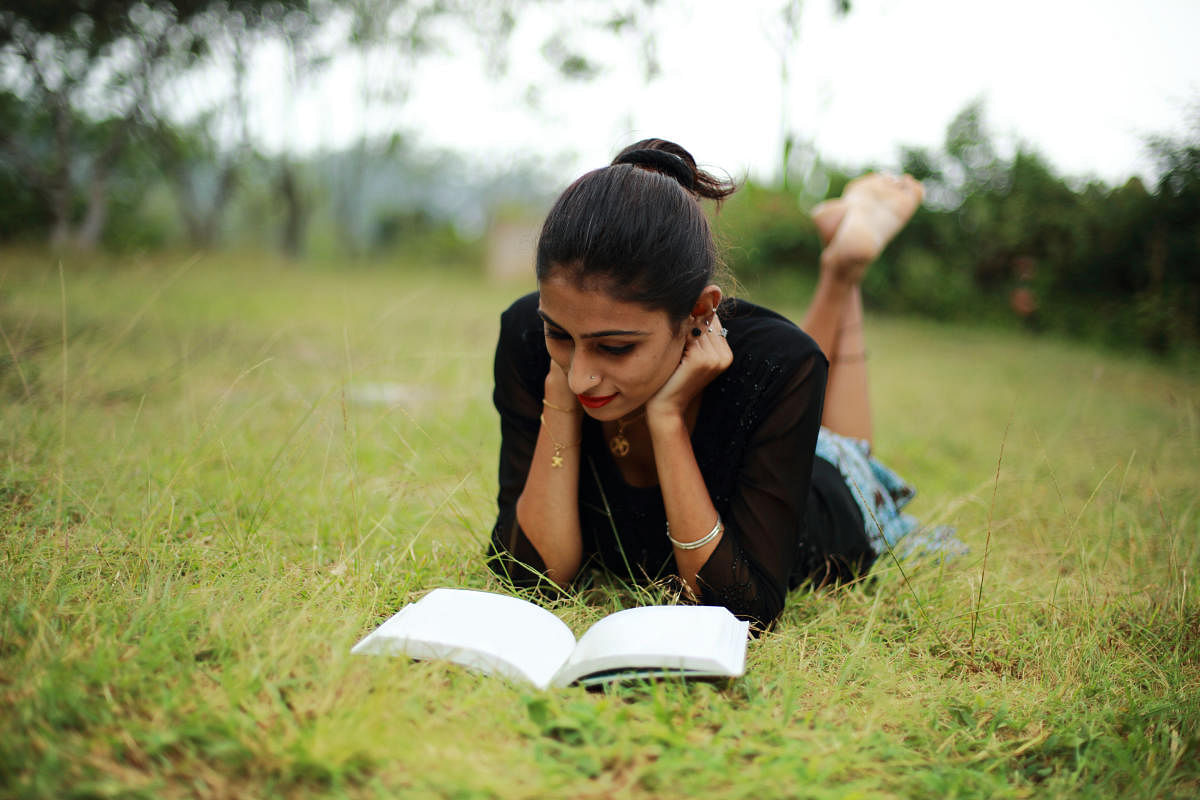
Kids these days have a diminishing attention span and seldom read, these are the two common complaints that parents have. With so many digital distractions at their fingertips, how can we get children to appreciate the art of reading? Many parents fondly recall cuddling up with a book over lazy summer afternoons and wish their kids could experience the same deep wonderment that only old-fashioned books can provide. But what many parents, including bibliophiles, don’t’ realise is that their own attention spans and reading habits are being compromised by screens of varying sizes.
Our “worries can no longer be directed only toward our young,” warns eminent psychologist and reading researcher, Maryanne Wolf in Reader, Come Home. In her newly-released book, Wolf examines how the reading brain is being altered by our increasingly digitalised lives. Foremost amongst Wolf’s concerns is that our ability to engage in deep reading is eroding. Prior to the Internet revolution, when books still held sway over our collective imagination, many people would immerse themselves in books, imbibing and evaluating every word written by an author.
Our very own hard drives
As readers patiently perused books, they would concomitantly engage in a host of cognitive processes that enriched their reading experience and altered them in innumerable ways. So, from visualising a descriptive passage to building a vast bank of background knowledge (that was stored within ourselves and not on a computer’s hard drive), readers grappled with the text they were reading. We also took on the perspective of others, who otherwise might be so removed from our quotidian lives. Further, readers also inferred what an author may have suggested and created analogies. Moments of insight occurred when readers married what they already knew with something they had just learned.
These thinking tools that readers gained from deep reading added to their cognitive arsenal, which they could then deploy in various situations. However, as devices replaced books, our reading habits have also undergone a seismic shift. As there is a glut of information vying for our attention, often simultaneously, on our devices, we prefer to browse and skim instead of mulling over an author’s words. In addition, hyperlinks, which give us ancillary information, often lead us astray from our original purpose. So, our attentions have also begun to flit. Instead of bookworms poring over a single book, we have morphed into butterflies, sucking a bit of nectar from here and a bit from there, but never quite savouring a whole meal.
Nowadays, we are bombarded by a surfeit of information. According to Wolf, “the average person in the United States reads daily the same number of words as is found in many a novel.” The same holds good for India as well. But it is the qualitative aspect of the reading process that is in jeopardy as “reading is rarely continuous, sustained, or concentrated.”
Reading on devices typically involves skimming and skipping as we rapidly scroll down a piece of text. As we ingest information more rapidly, our reading grows more superficial. We don’t give ourselves time to process, let alone ponder, content more profoundly. And Wolf laments the fact that our cursory style of reading is replacing our hard-won deep reading habits.
So, Wolf raises a clarion call for us to mend our ways before our digital forays colonise our minds completely. Of course, she is no Luddite, and readily acknowledges and embraces the immense benefits and the “cognitive capacities” that the digital revolution has brought us. But, she rightly cautions us to not forget or forsake the deep trains of thought we have carved in our brains as we “transition from a literacy-based culture to a digital one.”
So, what is her solution? Just as we in India readily acknowledge and appreciate the benefits of knowing more than one language, Wolf suggests that we cultivate a “biliterate reading brain.” For children, she recommends minimising access to digital media while they are learning to read so that they acquire deep reading habits, focusing on meaning. As children mature, they should be given selective access to discover and delight in digital marvels. At the same time, we need to help children acquire “digital wisdom” so that they can regulate and monitor their own usage of different media.
Structured & informed
For students, who read more online than off, make sure that you tailor your reading style to suit the contents and purpose of your reading. If you are browsing through entertainment or news sites, a cursory read may be fine. But if you are doing a research paper or studying from an e-book, then mere skimming and copy-pasting will just not suffice. Even if you are reading digitally, make sure you adjust your pace so that you engage with the material actively and patiently. Ask questions as if you are interacting with the author.
Question the veracity of information being presented. Make connections to what you already know. Find linkages with other texts you have read. Further, if you don’t understand a section, it’s perfectly fine to reread it for greater clarity. Make notes, not just by highlighting, but by drawing tables and diagrams. While you may have to use pen and paper right now, our devices may be designed in the future to facilitate deep reading by providing us with tools to do all this and more.
Just as we coax our kids and students to cultivate a biliterate brain, we, adults, too have a responsibility towards ourselves and to society to protect and preserve our deep reading habits even as we acquire speedier and spiffier digital ones.
(The author is with PRAYATNA)